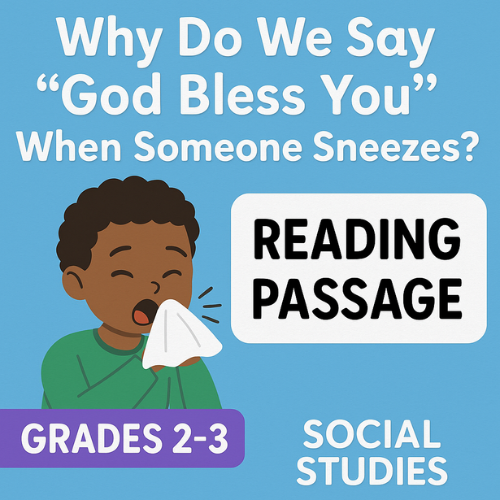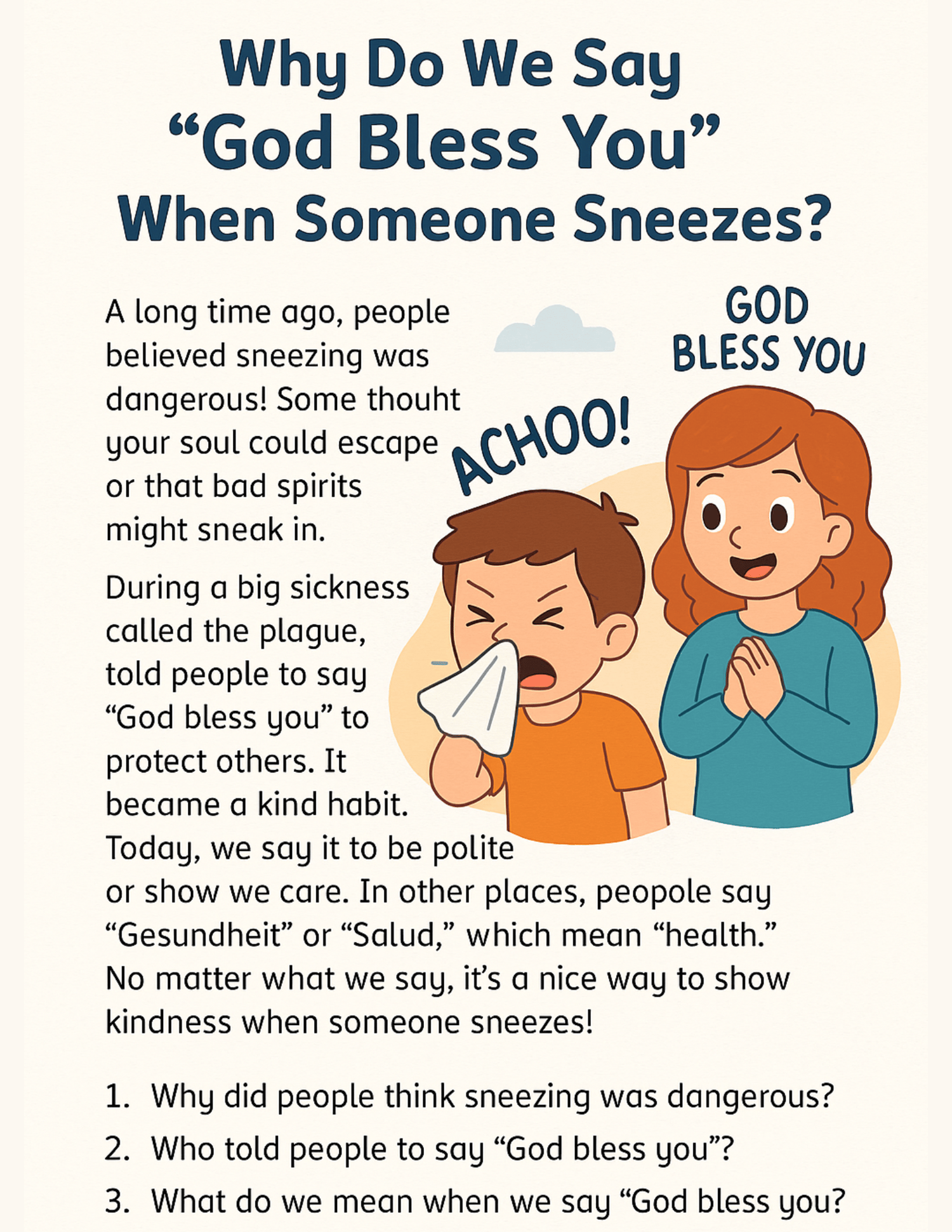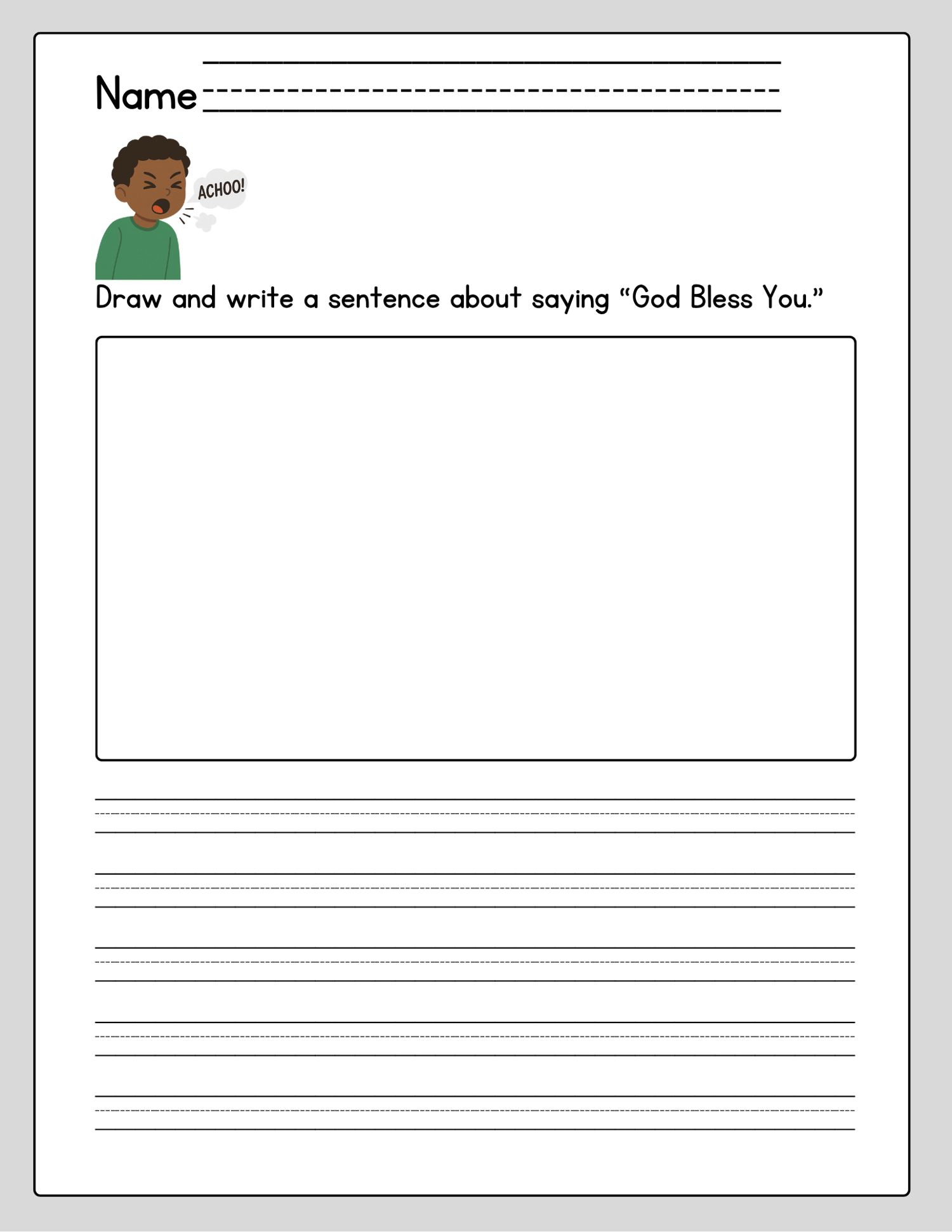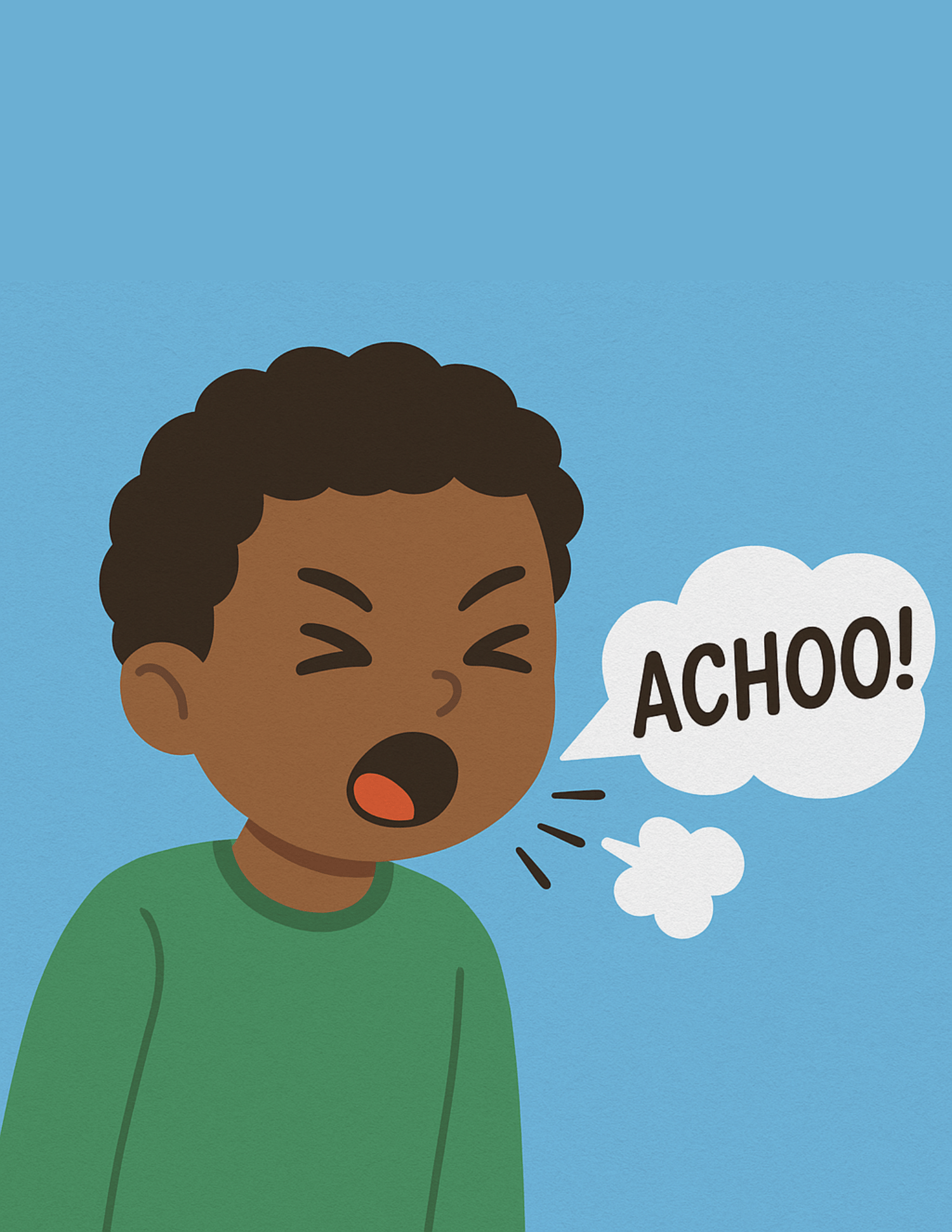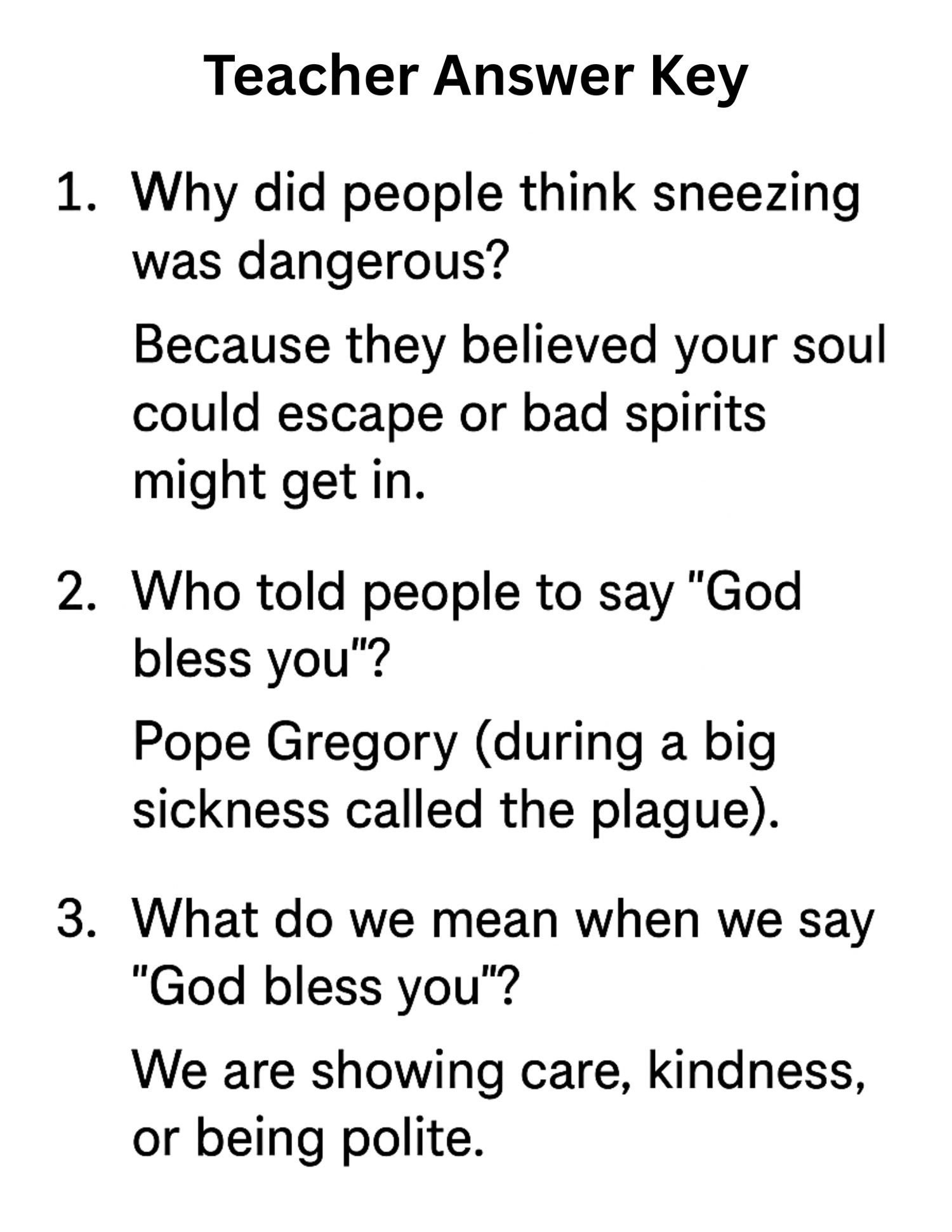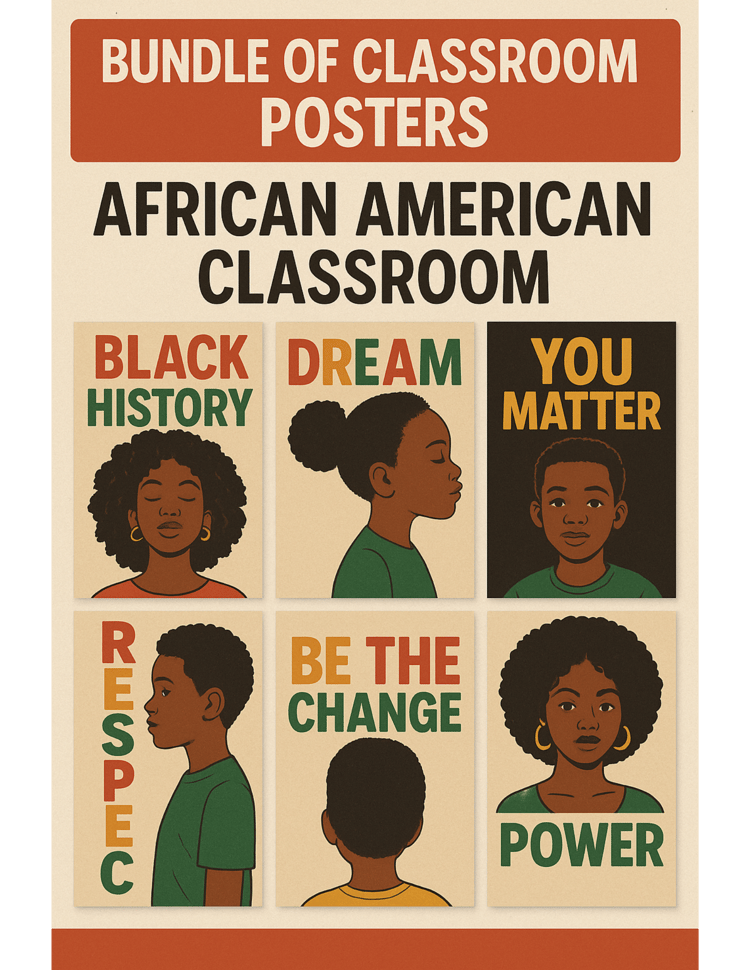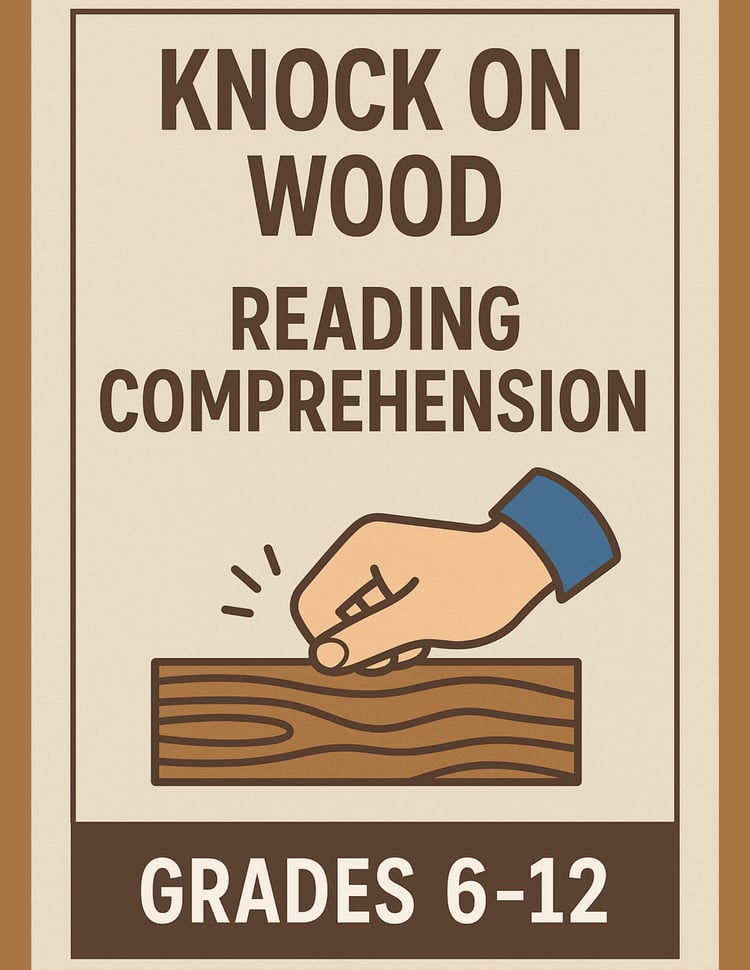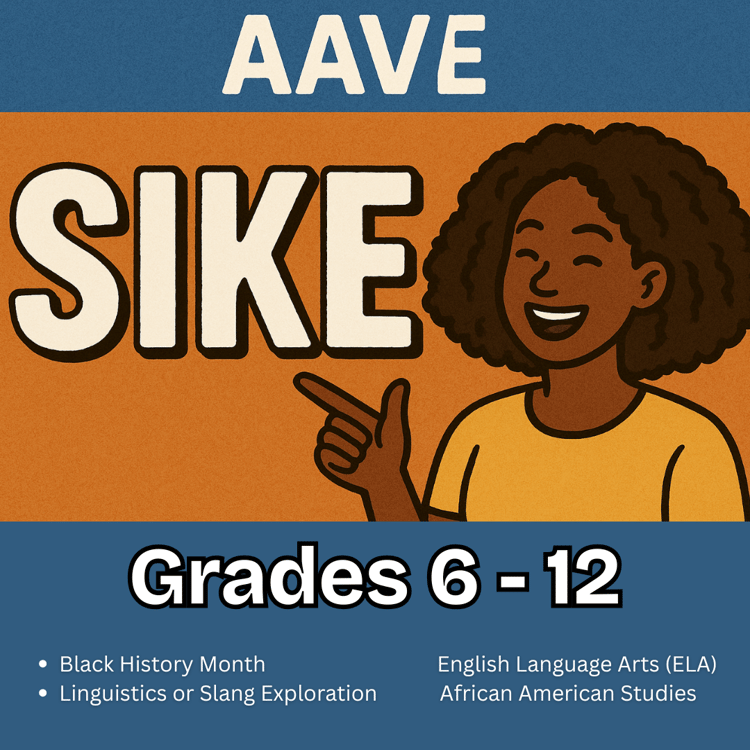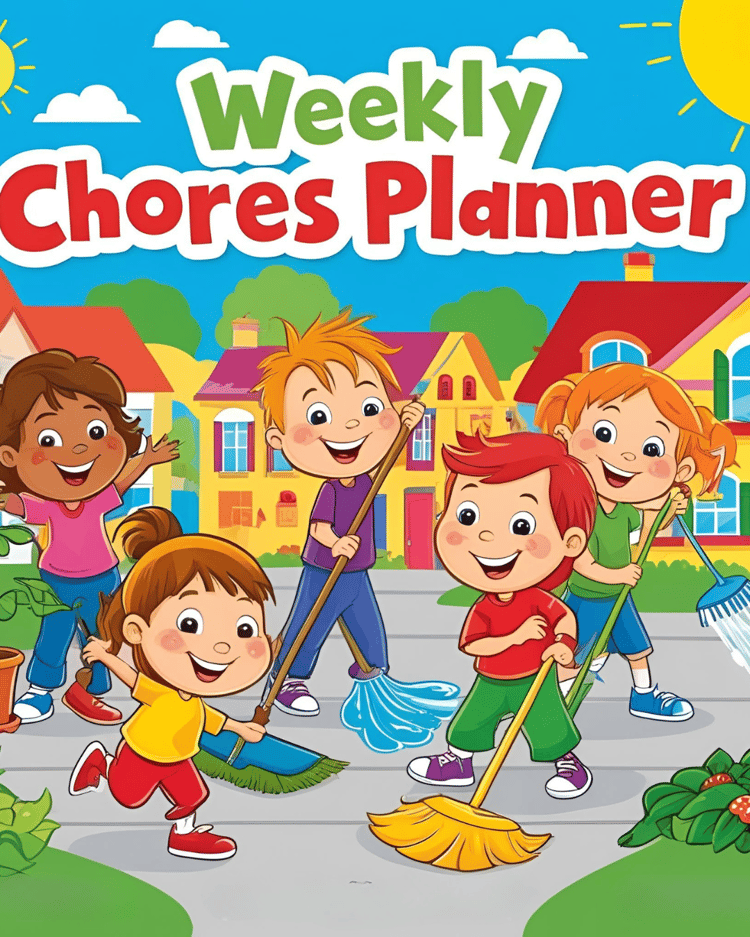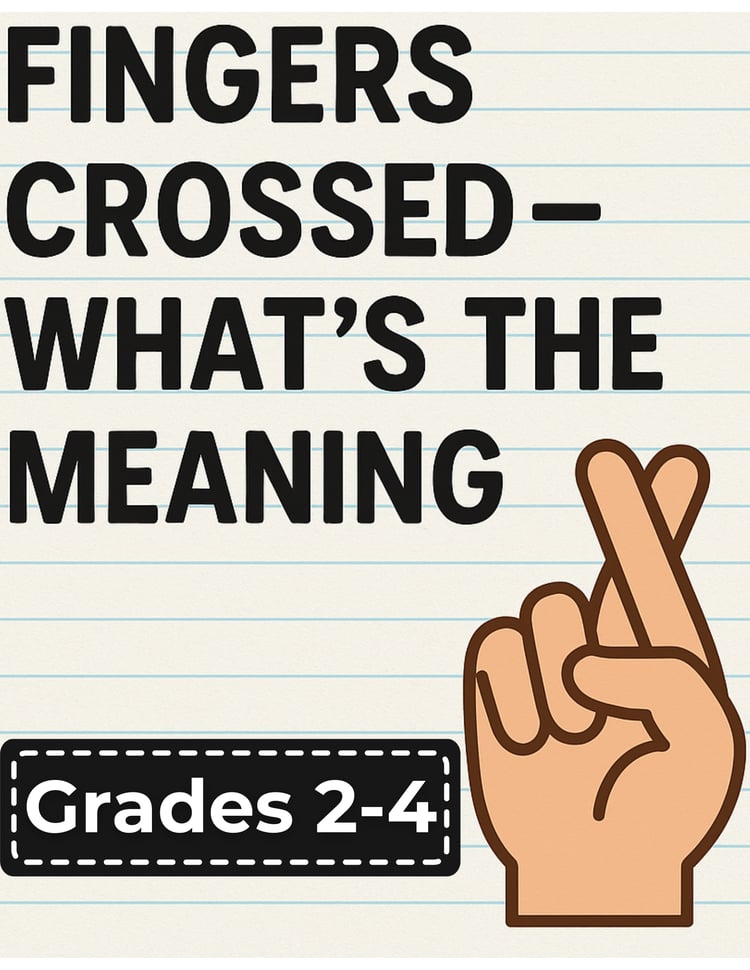Why Do We Say “God Bless You”? – 1st-3rd Grade Reading Passage, Questions & Answer Key
This fun and educational printable resource teaches 1st–3rd grade students the surprising history behind the phrase “God bless you” when someone sneezes. With an engaging, kid-friendly reading passage, three comprehension questions, and a matching answer key for teachers, this worksheet is perfect for literacy centers, bell ringers, early finishers, or social studies tie-ins.
🌟 What’s Included:
- 100-word reading passage with vocabulary support
- 3 comprehension questions
- Printable Answer Key for teacher use
- Friendly, illustrated graphic to engage learners
- Coloring Sheet
Use this resource to boost reading skills while introducing students to a fun historical fact they’ll love sharing! Perfect for a cross-curricular moment combining reading and cultural history.
📚 Common Core Standards (ELA-Literacy) Reading: Informational Text
- CCSS.ELA-LITERACY.RI.2.1 / RI.3.1
- Ask and answer questions such as who, what, where, when, why, and how to demonstrate understanding of key details in a text.
- CCSS.ELA-LITERACY.RI.2.2 / RI.3.2
- Identify the main topic and retell key details of a text (grade 2); determine the main idea and recount key details (grade 3).
- CCSS.ELA-LITERACY.RI.2.4 / RI.3.4
- Determine the meaning of words and phrases in a text relevant to a grade-level topic or subject area.
Speaking & Listening
- CCSS.ELA-LITERACY.SL.2.1 / SL.3.1
- Participate in collaborative conversations with diverse partners about grade-level topics and texts.
🌍 Social Studies Learning Standards Cultural & Historical Understanding (General Themes):
- National Curriculum Standards for Social Studies – Theme 1: Culture
- Explore how people from different cultures show care and kindness through language and traditions.
- Theme 2: Time, Continuity, and Change
- Understand how beliefs and traditions (like saying “God bless you”) have changed or stayed the same over time.
- Theme 4: Individual Development and Identity
- Examine how people express concern and politeness through everyday habits.



